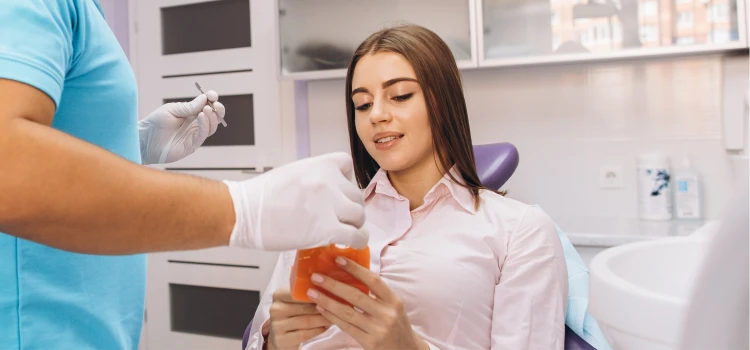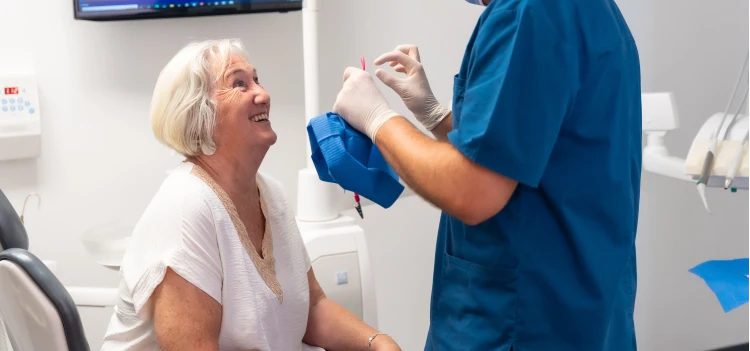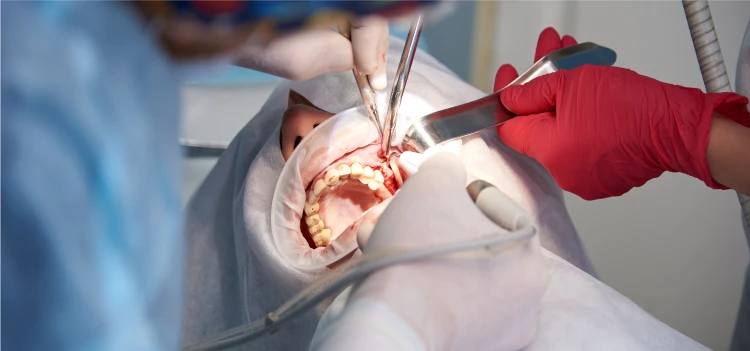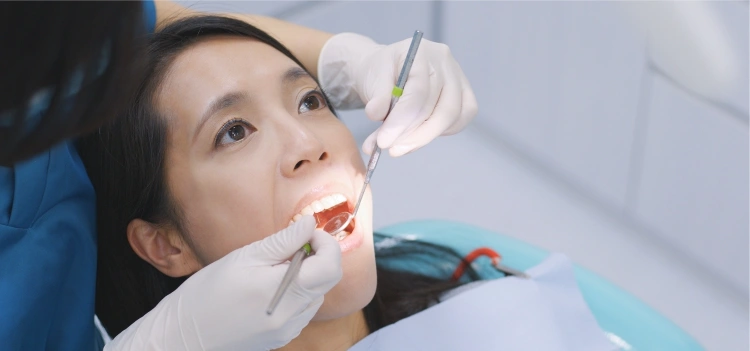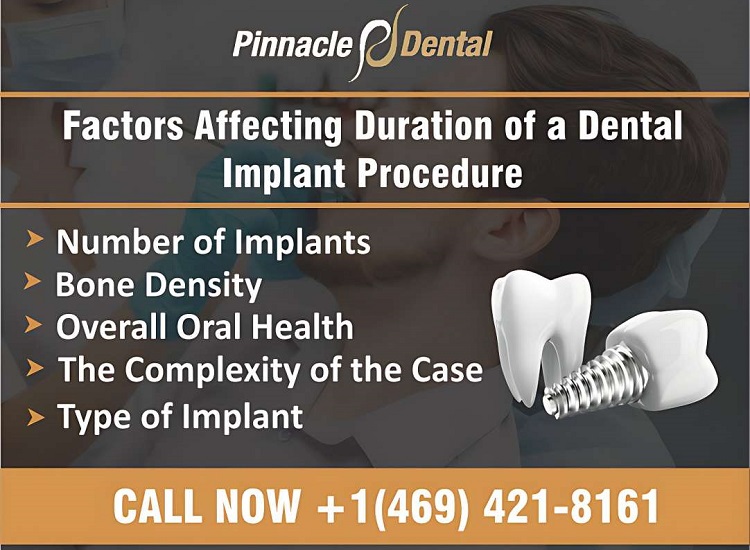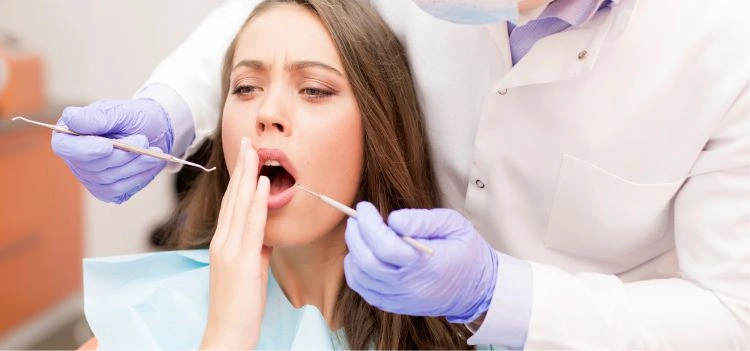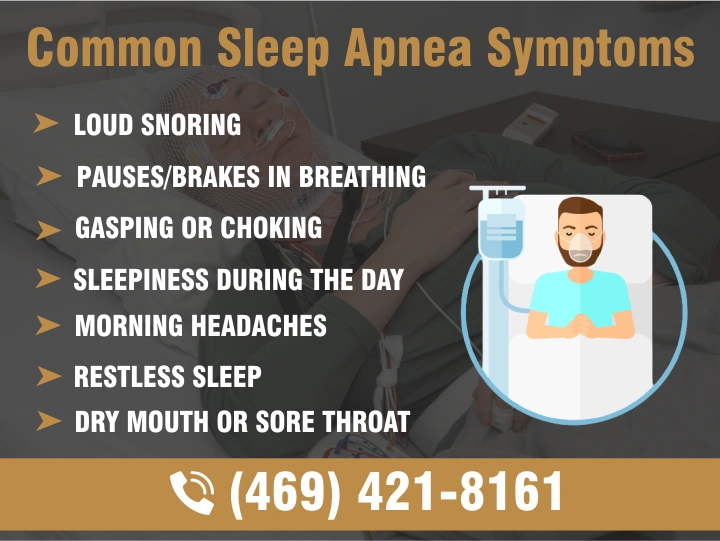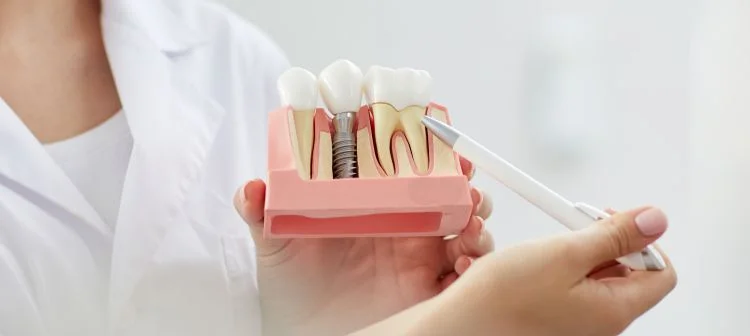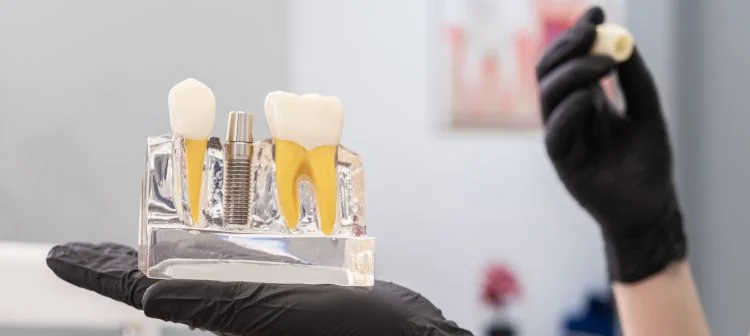Teeth whitening is generally safe but you need to consider the sensitivity of your teeth. While going for teeth whitening, you should follow all the instructions carefully and use professional products only. Most whitening methods remove the stains by bleaching your teeth’s outer enamel.
Nevertheless, the safest and most effective teeth whitening methods are in-office treatment and home-kits prescribed by dentists.

How does teeth whitening work?
Teeth whitening works by using special chemicals to remove stains and discolouration from the surface of your teeth. This process gives a long-lasting brighter smile and more attractive teeth.
Here’s a simplified explanation of how it works –
-
Stain Removal
Teeth whitening products contain chemicals, usually hydrogen peroxide or carbamide peroxide, which break down the stains on your teeth. These stains can come from various sources like coffee, tea, tobacco, or certain foods.
-
Peroxide Penetration
When you apply a teeth whitening product to your teeth, the peroxide in the product penetrates the outer layer of your teeth called the enamel. It goes beneath the surface to reach the inner layer called dentin, where the stains are located.
-
Oxygen Release
Once the peroxide reaches the dentin, it begins to release oxygen molecules. These oxygen molecules react with the stain molecules, breaking them down into smaller, less noticeable particles.
-
Color Lightening
As the stain molecules break down, the color of your teeth gradually lightens, making them appear whiter and brighter. This process may take several treatments or sessions to achieve the desired results.
Teeth whitening (usually with hydrogen peroxide) works this way to effectively brighten your teeth. But teeth whitening on dental restoration might not work.
Types of teeth stains-
There are two main types of teeth stains –
-
Extrinsic (External) Stains
These stains occur on the outer surface of the teeth and are caused by external factors such as food, drinks, and habits. Extrinsic stains are usually easier to remove and respond well to teeth whitening treatments.
-
Intrinsic (Internal) Stains
Intrinsic stains develop within the inner structure of the teeth and can be more challenging to treat. They are caused by factors that affect the tooth’s internal color such as aging, medication and infection. They require more intensive whitening methods or other cosmetic dental procedures to achieve desired results.
Consulting with a teeth whitening dentist in Frisco can help determine the type of stains you have and recommend the most suitable treatment options for your specific needs.
Contact Us to get a radiant smile with Teeth Whitening-
Teeth whitening helps in giving you a flawless and radiant smile. Pinnacle Dental has an experienced team that understands the importance of personalized care and will guide you through the teeth whitening process, ensuring your safety and satisfaction. Consult with the Frisco Dentist and let us help you achieve your brighter smile goals.

